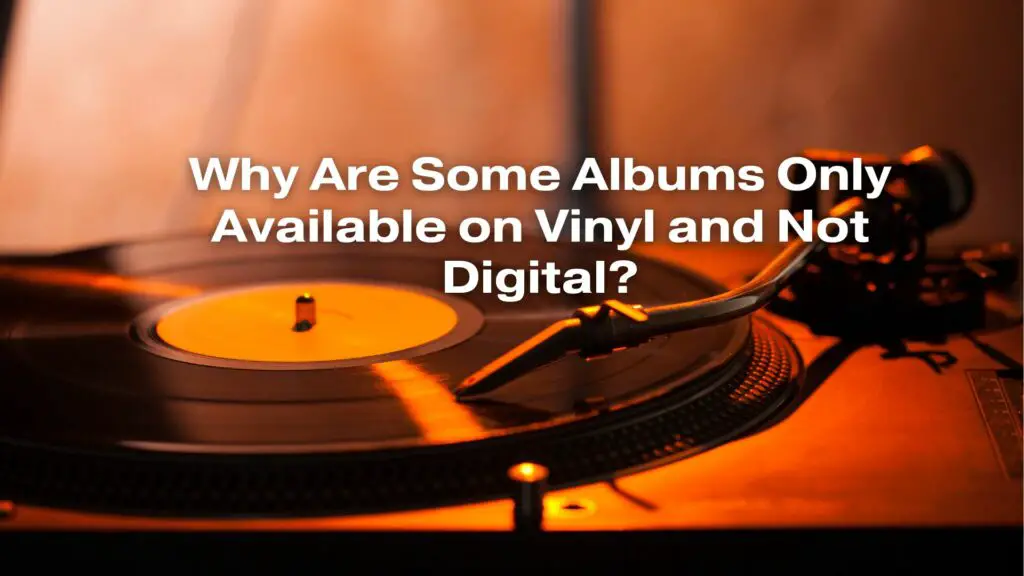In today’s digital age, music listeners have grown accustomed to instant access to an extensive digital library of songs and albums at their fingertips. However, there’s a unique trend emerging within the music industry – some artists and record labels are choosing to release albums exclusively on vinyl, bypassing digital formats entirely. This raises the question: why are some albums only available on vinyl and not digital? Let’s explore the reasons behind this intriguing shift.
1. Nostalgia and Aesthetic Appeal:
One of the primary motivations for releasing albums exclusively on vinyl is the nostalgia associated with the format. Vinyl records evoke a sense of nostalgia and offer a tactile and tangible connection to music. For many artists and collectors, vinyl provides a unique and authentic listening experience that digital formats cannot replicate. The large album artwork, the warmth of analog sound, and the ritual of placing a needle on the record all contribute to vinyl’s enduring appeal.
2. Audiophile Sound Quality:
Vinyl records are renowned for their analog sound quality. Audiophiles often prefer vinyl for its warm and rich sound, dynamic range, and the absence of digital compression. Some artists and labels choose to release music on vinyl to cater to audiophile listeners who appreciate the superior audio quality that vinyl offers.
3. Limited Edition and Collectibility:
Releasing albums exclusively on vinyl can create a sense of exclusivity and collectibility. Limited-edition vinyl records can become sought-after collector’s items, driving fans and collectors to purchase physical copies. The scarcity of vinyl releases can increase their value and desirability.
4. Artist Autonomy and Independence:
Some artists and independent labels opt for vinyl-only releases as a way to maintain creative control and independence. Vinyl allows artists to create a unique physical product that they can design and distribute without the constraints of digital distribution platforms. It provides a sense of autonomy in a music industry often dominated by digital platforms and streaming services.
5. Artistic Expression and Album Concept:
Vinyl allows artists to craft a more immersive and experiential album concept. The physicality of vinyl records offers an opportunity to incorporate artwork, inserts, and other tangible elements that enhance the album’s thematic or visual aspects. Some artists see vinyl as a canvas for their creativity.
6. Resurgence of Vinyl’s Popularity:
The resurgence of vinyl’s popularity over the past decade has created a growing market for the format. Vinyl sales have steadily increased, and new pressing plants have emerged to meet the demand. As a result, artists see vinyl as a viable and profitable format for their music.
7. Connection with Fans:
Vinyl records often have a dedicated and passionate fan base. By releasing albums exclusively on vinyl, artists can strengthen their connection with these devoted fans who appreciate the format’s unique characteristics. Vinyl releases can create a sense of intimacy between artists and their audience.
In conclusion, the decision to release albums exclusively on vinyl and not in digital format is a reflection of the diverse and evolving landscape of the music industry. While digital music remains dominant, vinyl’s enduring charm, superior sound quality, and artistic possibilities continue to attract artists and labels. This trend underscores the enduring power of vinyl records in the digital age and celebrates the diverse ways artists can connect with their audience through physical, analog music experiences.


